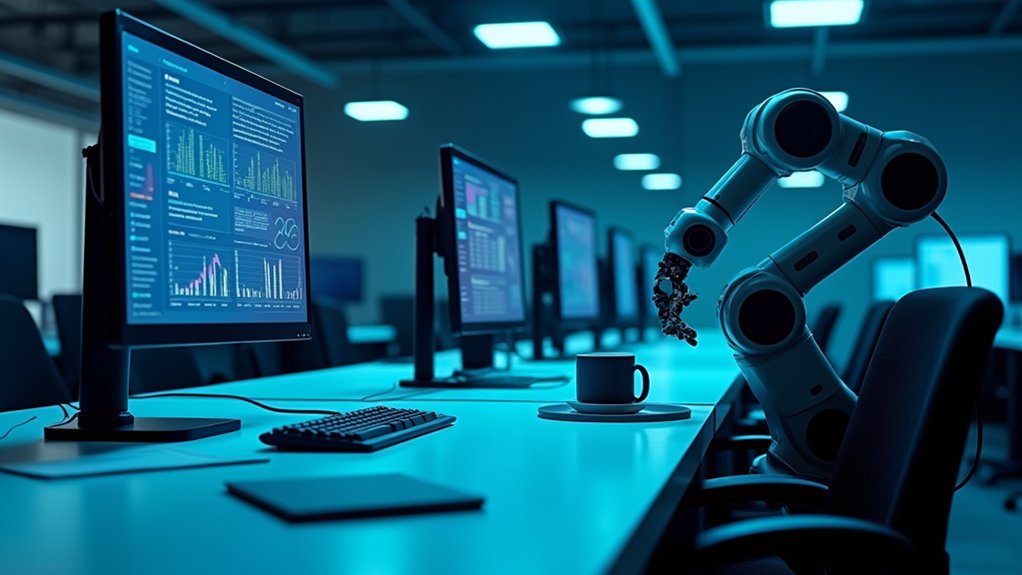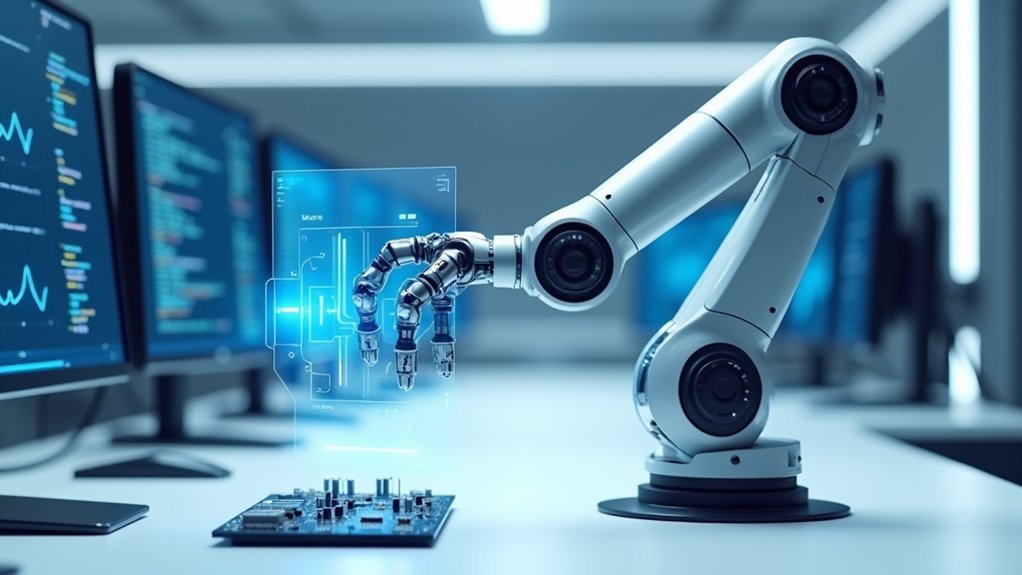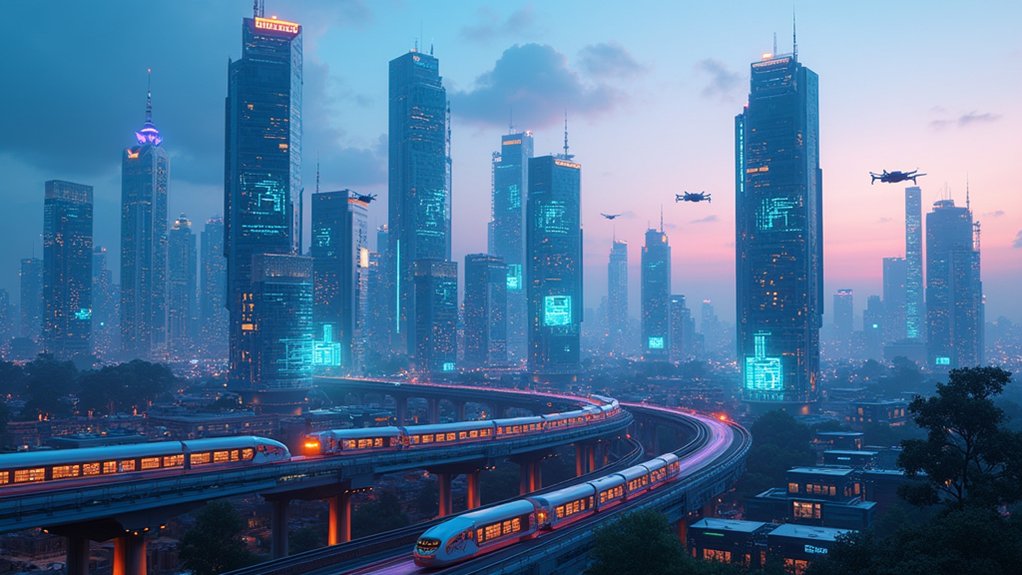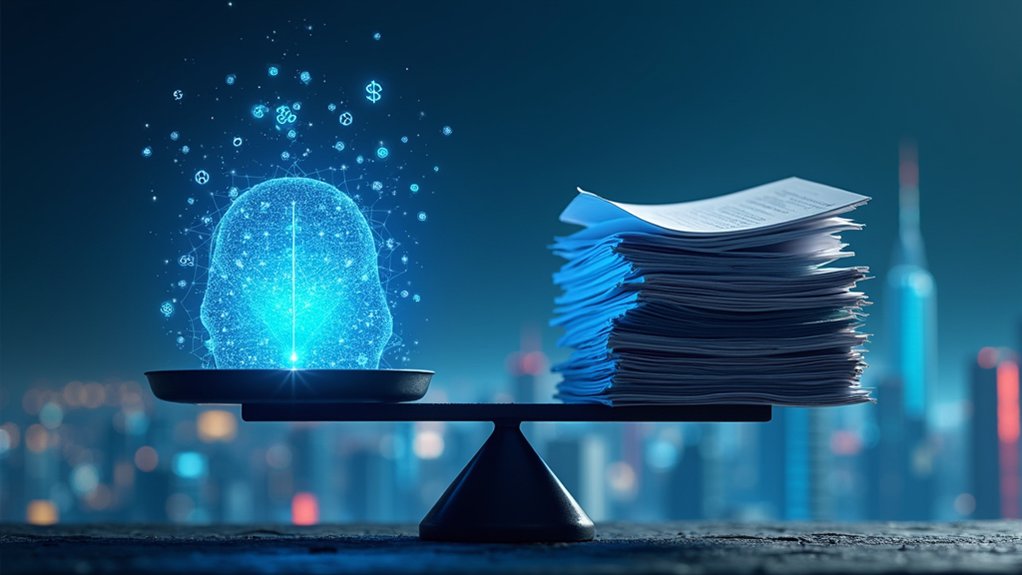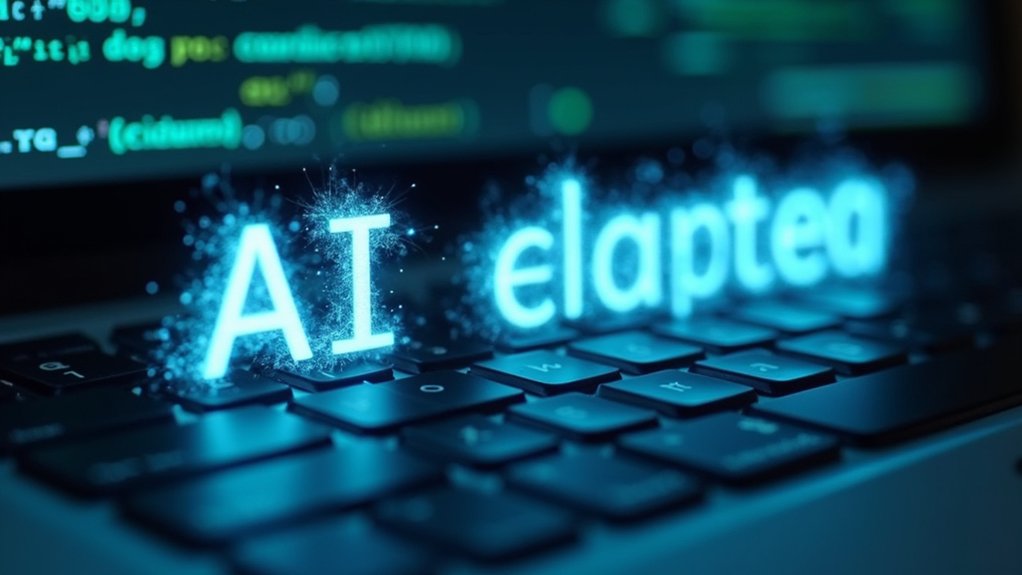AI is rapidly transforming the job market. Studies show it could automate 300 million jobs by 2030, with 44% of companies using AI expecting staff cuts in 2024. However, the World Economic Forum predicts 97 million new roles may emerge by 2025. Workers generally view AI positively, with 72% seeing it as helpful. The shift requires significant reskilling, with one billion people potentially needing new skills. The full impact remains to unfold.
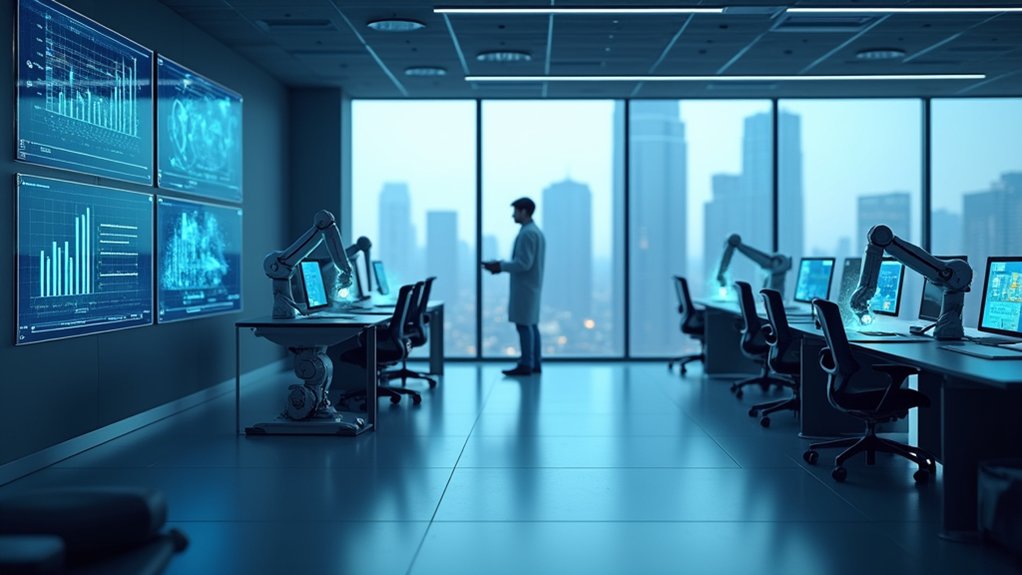
How will our jobs change as artificial intelligence becomes more common in the workplace? Reports show that by 2030, AI could automate about 300 million full-time jobs worldwide. About 14% of workers may need to switch occupations, and 40% fear losing their jobs to AI within 3-5 years. Companies aren't waiting – 44% of those using AI expect to cut staff in 2024.
The AI revolution isn't waiting for anyone—millions of jobs will transform while others disappear entirely.
But there's another side to this story. The World Economic Forum predicts 97 million new roles may emerge from AI by 2025. Job postings related to AI increased 11 times from 2013 to 2019. Experts believe 65% of children starting school today will work in jobs that don't even exist yet. AI will primarily replace jobs with repetitive tasks while creating opportunities in specialized fields like AI development and human-AI collaboration.
The challenge lies in preparing workers for these changes. About 54% of employees need significant reskilling, and one billion people worldwide may need new skills by 2030. Companies recognize this – 77% plan to retrain their employees as they adopt AI. The global market for AI-related training could reach $15 billion by 2025. Studies show advanced economies have about 60% of jobs at risk of AI replacement, according to IMF research.
Businesses are moving quickly toward AI adoption. About 77% of companies are using or exploring AI, and 80% of tech leaders are speeding up their AI plans. This shift could add $15.7 trillion to the global economy by 2030, potentially increasing global GDP by 14%. Interactive training simulations are becoming essential tools for preparing employees to work alongside AI systems effectively.
Some industries lead in AI adoption. Half of financial companies have implemented AI, while 61% of marketing specialists use AI for content creation. Healthcare providers are joining too, with 86% using or planning to use AI.
Workers seem surprisingly positive about these changes. About 72% view AI tools as helpful for their jobs, and 60% believe AI will make them more productive. Many workers (57%) look forward to AI handling boring tasks, and 82% think AI skills will be important for their future careers.
As AI continues to transform workplaces, both challenges and opportunities lie ahead.
Frequently Asked Questions
Will AI Surpass Human Intelligence Completely?
Experts remain divided on whether AI will completely surpass human intelligence.
While AI currently exceeds human abilities in specific tasks like chess and image recognition, it lacks general reasoning and emotional intelligence.
Some researchers predict human-level AI within 5-10 years, while others see significant challenges ahead.
The path to superintelligent AI involves both technological hurdles and ethical questions that aren't yet resolved.
Can AI Systems Develop Consciousness or Emotions?
Current AI systems don't possess consciousness or genuine emotions. They simply mimic human responses based on programming.
Scientists agree that today's AI lacks the biological structures needed for consciousness. While machines can analyze emotions and respond accordingly, they don't actually feel anything.
The debate continues about whether future AI might develop consciousness, but this remains theoretical. Many experts believe true machine consciousness would require breakthroughs in understanding human consciousness first.
How Will AI Impact Global Inequality?
AI may worsen global inequality. Studies show 300 million jobs could be displaced by 2030, with advanced economies facing greater disruption than developing nations.
Wealthier countries have better infrastructure to adopt AI and gain productivity benefits. Meanwhile, automation has already reduced wages by up to 70% since 1980.
Without proper policies like retraining programs and education investments, the gap between rich and poor countries could grow.
Could Humans Merge With AI Technologies?
Researchers are exploring ways humans and AI might merge. Brain-computer interfaces allow direct communication between brains and machines.
Systems like DishBrain show how biological cells can interact with technology. Some experts predict human-AI fusion could happen by 2030.
While there's potential for improved health and cognition, concerns about identity loss and privacy remain. The technology raises questions about what it means to be human.
What Fail-Safe Measures Exist Against Malevolent AI?
Several fail-safe measures exist against potentially harmful AI systems. These include kill switches for emergency shutdowns, isolated testing environments called sandboxes, and robust access controls.
Multi-factor authentication limits who can use AI systems. Human oversight keeps people involved in critical decisions.
AI-specific firewalls and intrusion detection systems provide technical protection. International standards and ethics boards are also being developed to guide responsible AI development and deployment.
